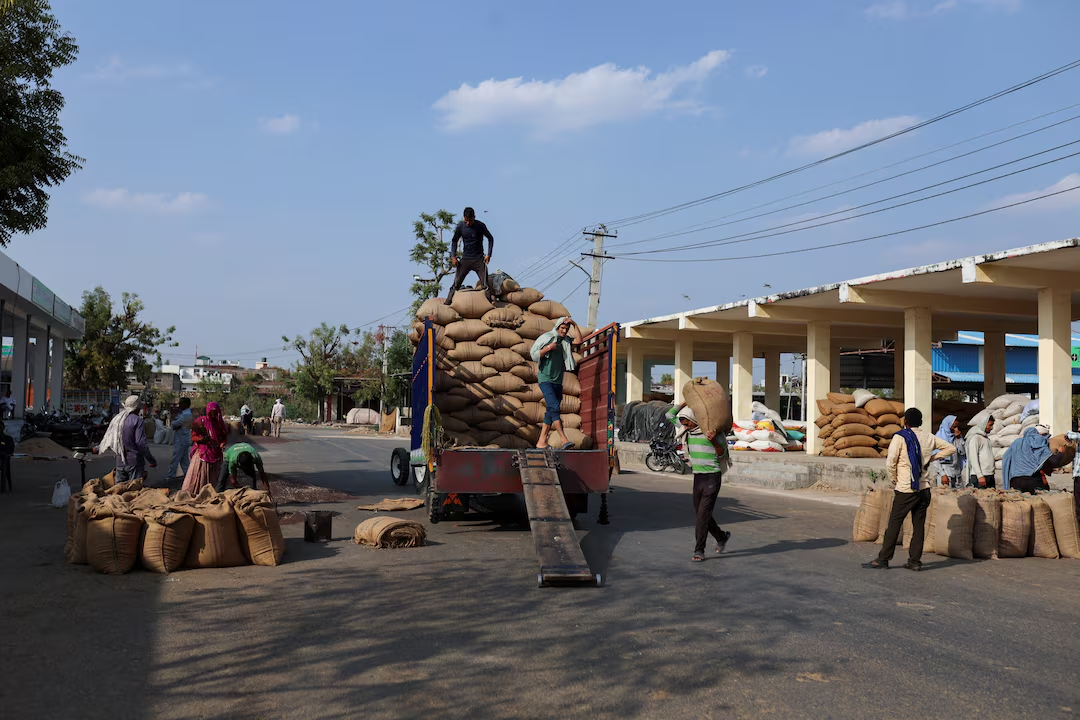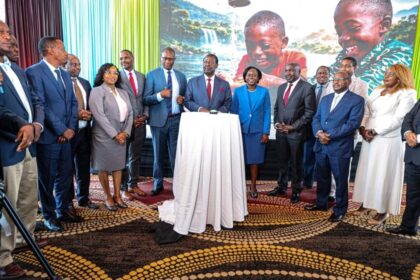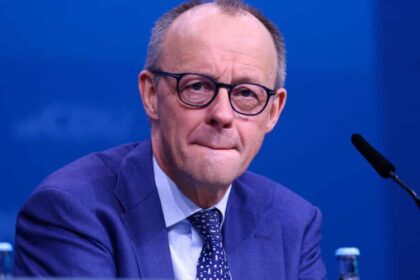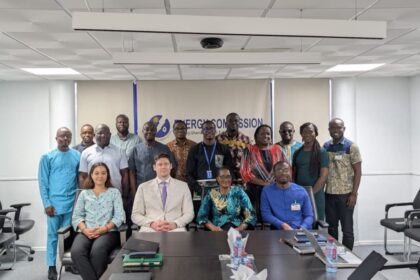A top UN climate official demanded Brazilian authorities immediately develop a plan for addressing security lapses, soaring temperatures, flooding and other poor conditions at the COP30 conference in the city of Belém.
Simon Stiell, executive secretary of the UN Framework Convention on Climate Change, rapped Brazilian authorities for a security breach Tuesday night, when activists stormed into the conference venue, and said officers had failed to disperse other protesters Wednesday morning inside a security zone where such civil actions are forbidden.

In a Nov. 12 letter to Brazilian officials seen by Bloomberg News, Stiell said the office of President Luiz Inácio Lula da Silva had instructed federal police not to intervene to disperse some protesters Wednesday.
He outlined a series of vulnerabilities, including non-secured doors, inadequate security personnel and no guarantee that federal and state authorities would respond to intrusions, despite agreements with Brazil.
“This represents a serious breach of the established security framework” and raises “significant concerns” about whether Brazil is complying with its security obligations as the official host and president of COP30, Stiell said.
Stiell’s letter was addressed to Rui Costa, Lula’s chief of staff, as well as André Corrêa do Lago, who is presiding over COP30 negotiations. Brazil’s government is in charge of the venue site in Belém, near the mouth of the Amazon River.
The government wasn’t involved in decisions made by public security forces during the protests on Tuesday, Brazil’s Chief of Staff Office said in a statement. Security inside the Blue Zone falls under the responsibility of the UN Department of Safety and Security, “which determines how all areas within the zone are protected,” the office said, adding: “All UN requests had been met.”
Following the protest, the office said security perimeters were expanded and additional measures were adopted, including widening the buffer zone and installing fences and metal barriers at vulnerable points.
A spokesman for UN Climate Change declined to comment on the letter but said “swift actions have been taken to address issues as they arise, and the COP is proceeding well and on schedule.”
“Our shared objective is to ensure that the COP30 venue continues to reflect the professionalism, safety and inclusiveness expected of a United Nations conference of this global importance,” Stiell said in his letter.
It’s a potentially embarrassing repudiation for Lula, who insisted that hosting the international conference in the Amazon was essential to spotlighting the realities of climate change — and defied calls to shift to other, larger cities that offer more hotels and infrastructure to support the summit.

Stiell singled out an incident Tuesday evening, when roughly 150 demonstrators forced their way into the conference venue, damaging property and injuring security staff. “The security forces and command structure required to execute the security plan were all present on the ground during the incident but failed to act,” Stiell said.
Stiell also identified a host of infrastructure problems that have plagued the event, including high temperatures and inadequate air conditioning, which he said require “immediate intervention” to “safeguard the well-being of delegates and personnel.” Already, Stiell said, there have been “instances of heat-related health concerns” amid non-functioning or uninstalled air-conditioning systems.
Belém’s heavy rains have also caused problems inside the site, Stiell said, with water entering “the ceiling and light fixtures, creating not only disruption but also potential safety hazards due to electrical exposure.”
New air-conditioning units have been installed in tents and rooms, according to Brazil’s Chief of Staff Office. Leaks during heavy rainfall were caused by broken gutters and have been repaired, it added.
Brazilian authorities were criticized heavily in the runup to the COP30 summit for logistical hurdles, including a lack of affordable accommodation in Belém. That stoked concerns that many small island nations and developing states would not be able to send full-strength delegations, potentially undermining negotiations.
Lula has long said hosting COP30 on the edge of the Amazon would highlight the reality of climate change, as Belém grapples with high levels of poverty and creaking infrastructure. However, the logistical challenges also prevented a number of world leaders from showing up to the summit last week.
During the conference, delegates have faced frequent water shortages in bathrooms, stifling temperatures, unfinished pavilions and long lines for food as well as a payment system that requires topping up a pre-paid card, with refunds only permitted to those showing proof of identification.
Stiell noted the discomfort among member nations at the summit — including countries that have borne “considerable costs” to mount pavilions and rent office space at the site. There’s been “serious concern regarding the poor condition of delegation offices,” he said, and several facilities “fall below agreed standards,” while others “are not fit for use.”
Source: https://www.bloomberg.com/news/











